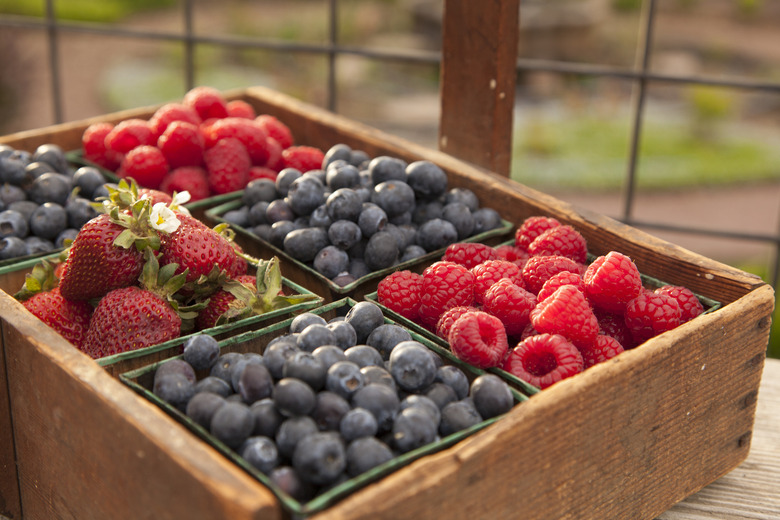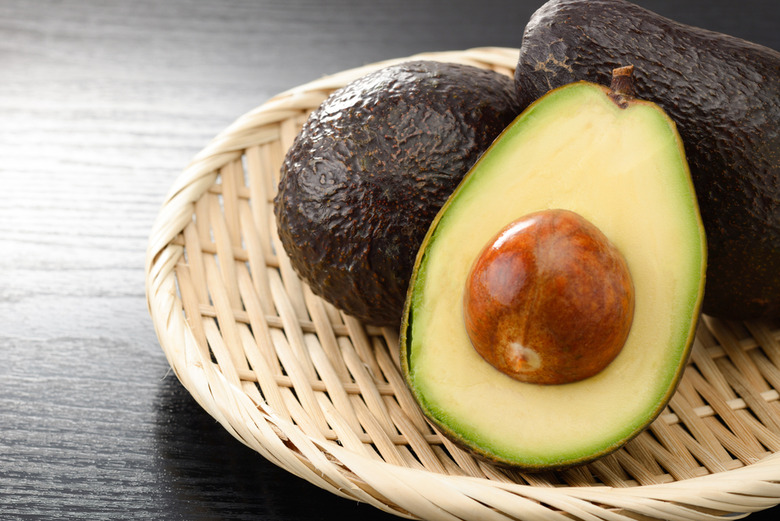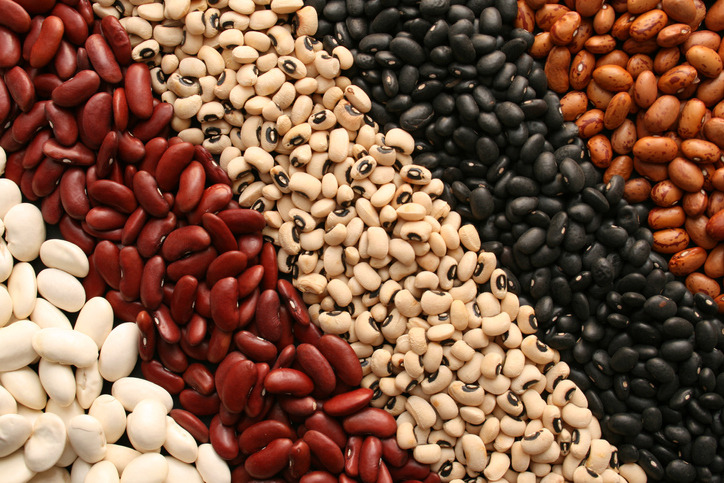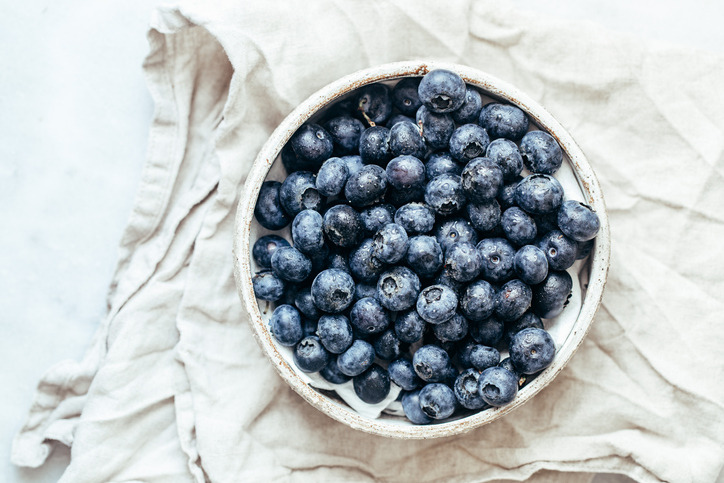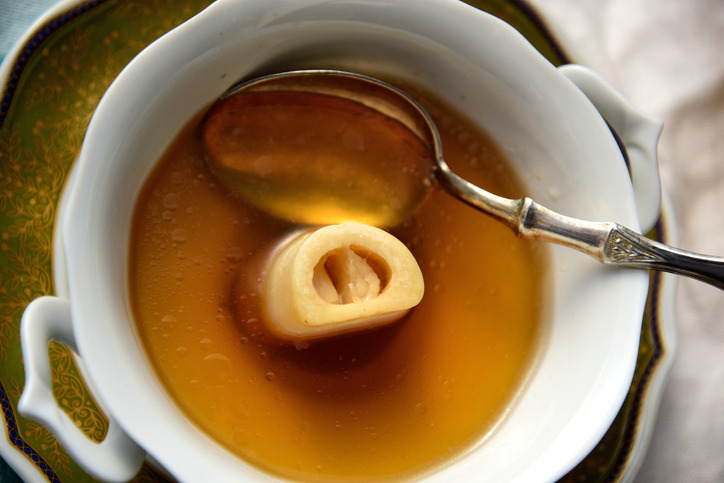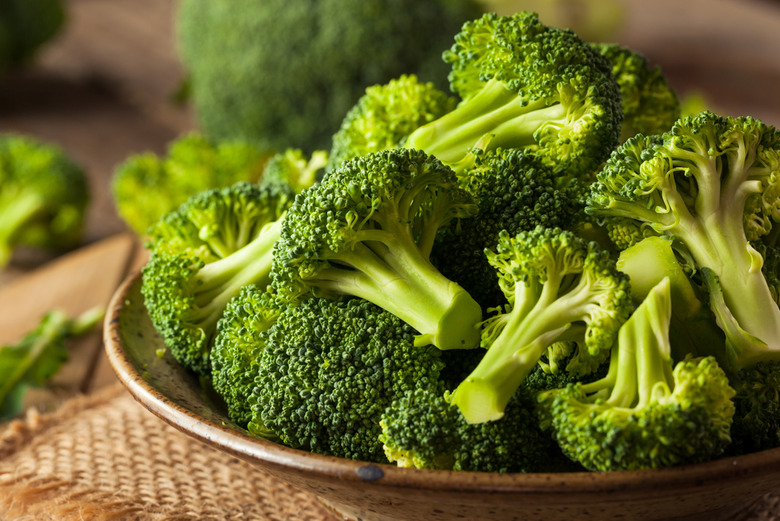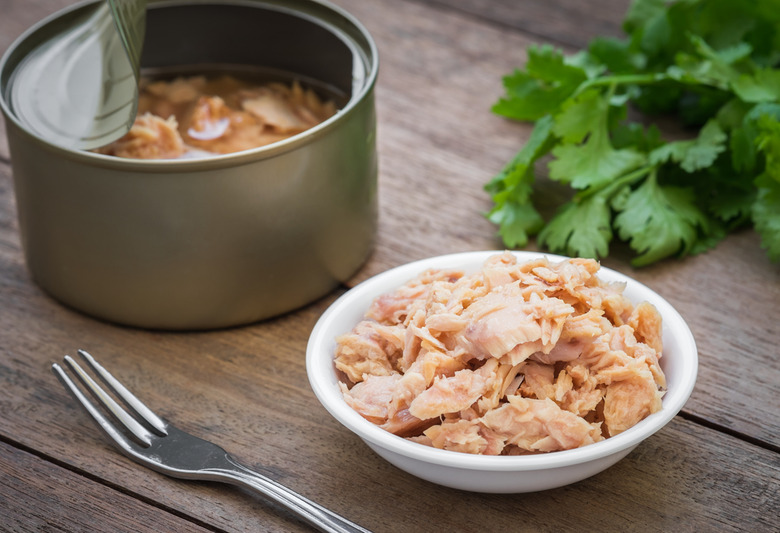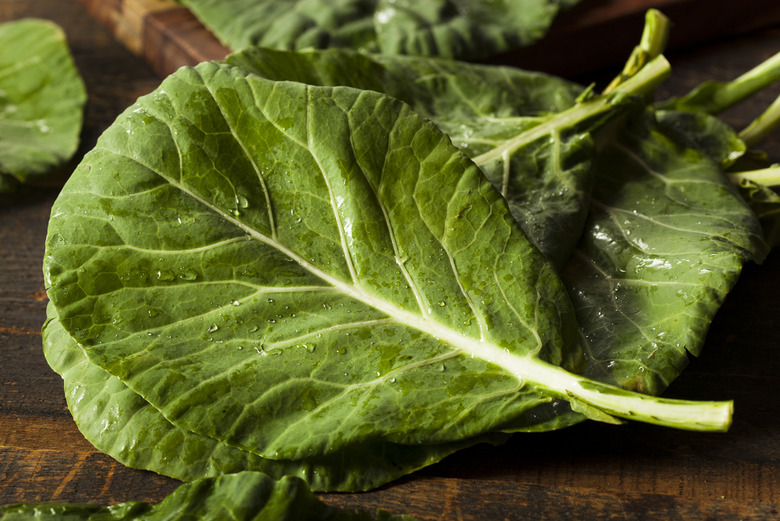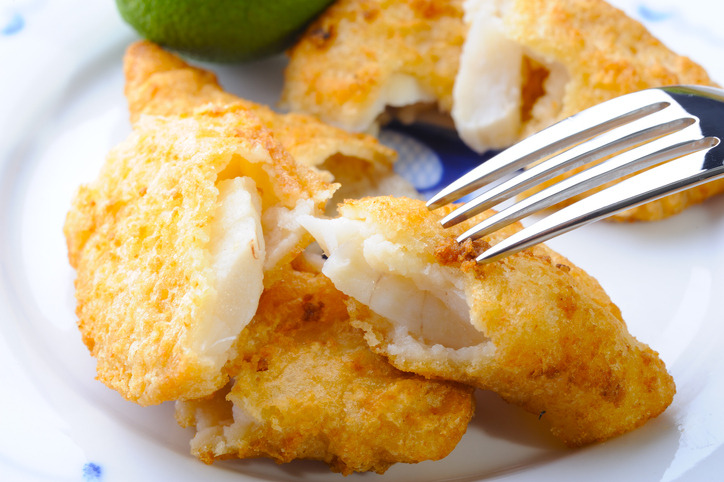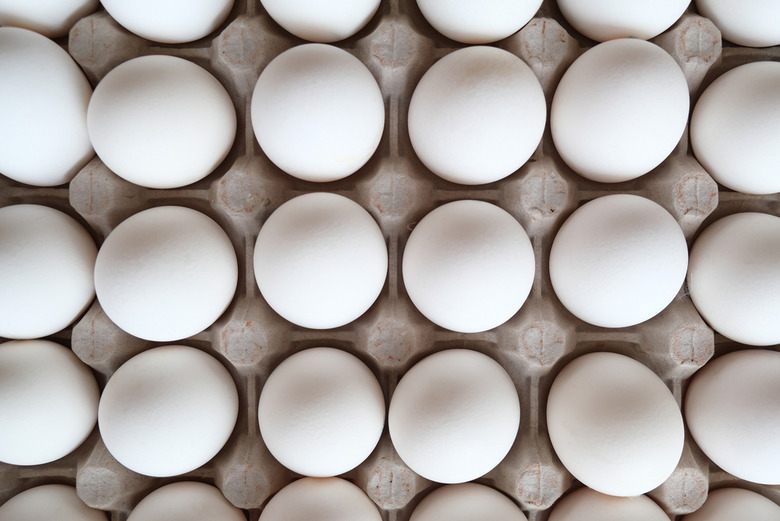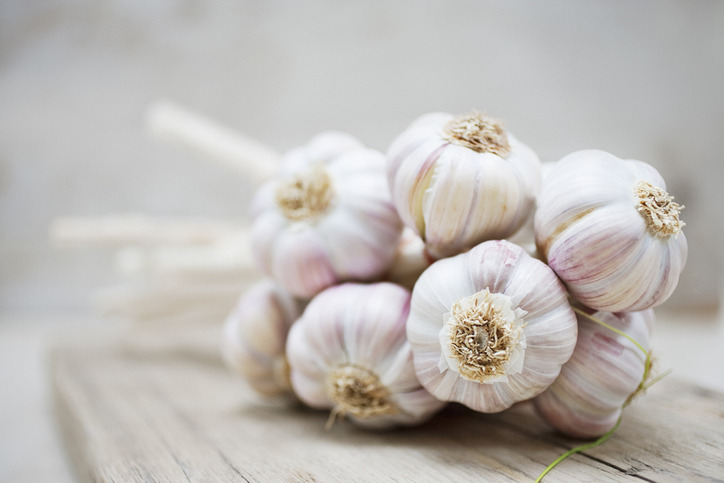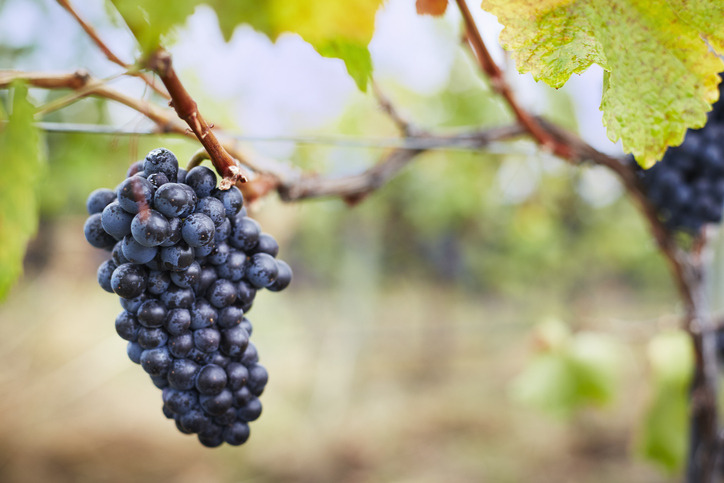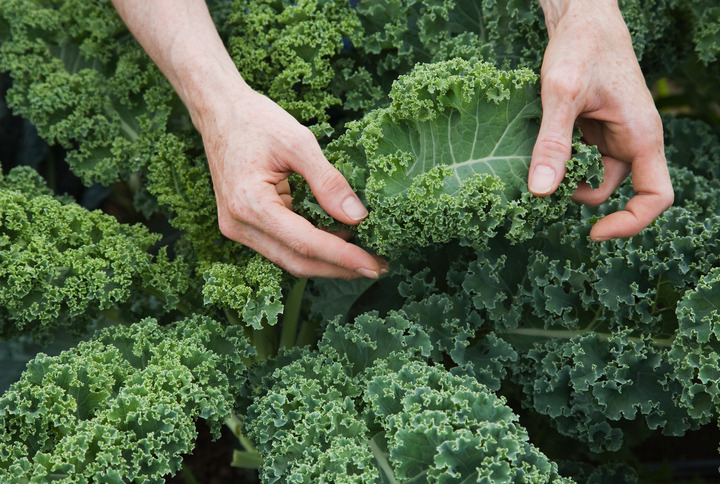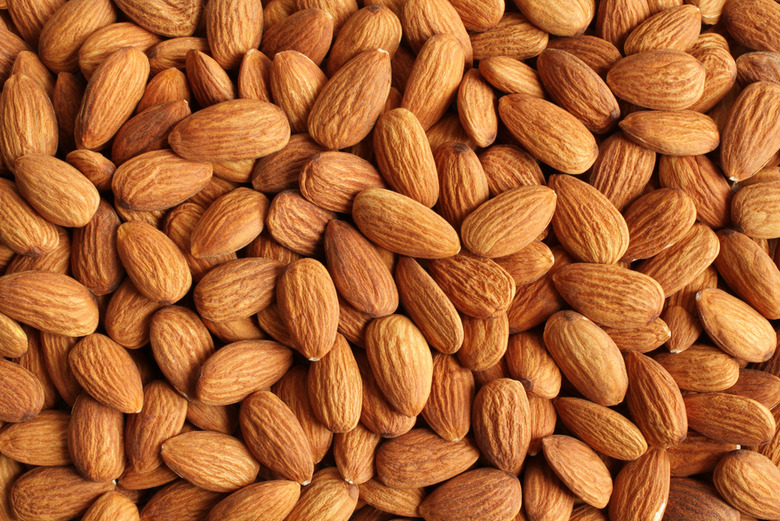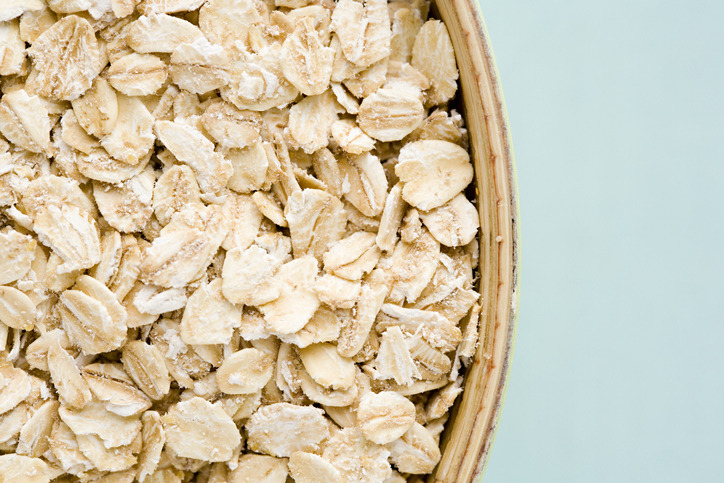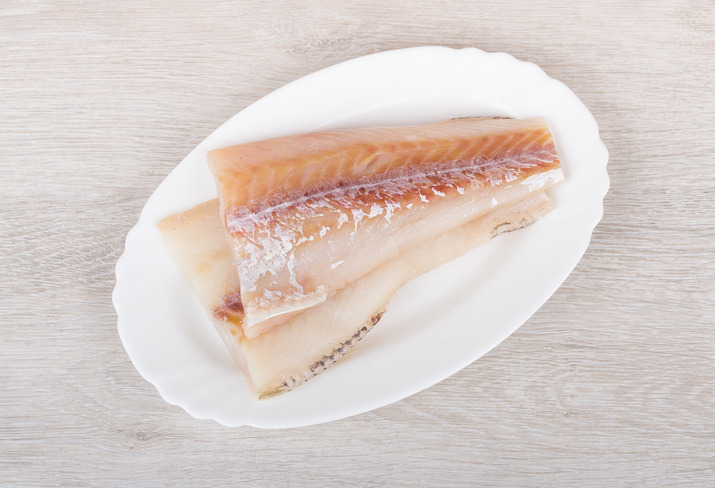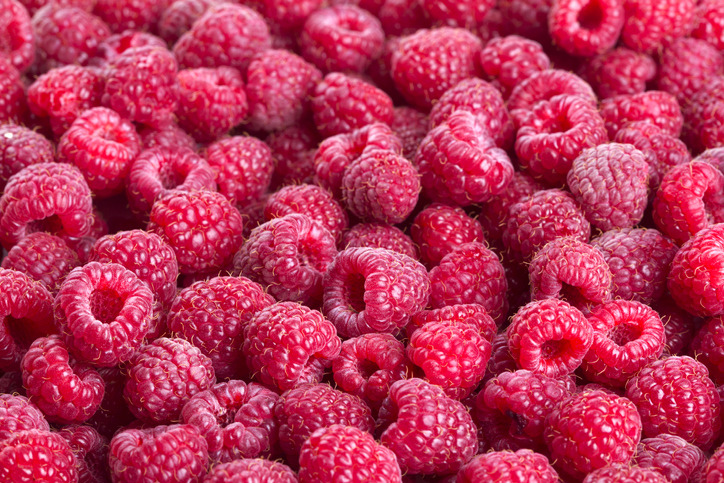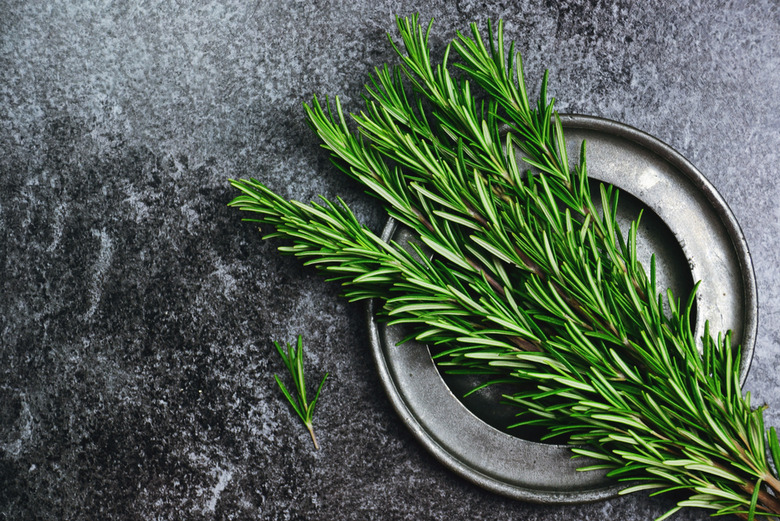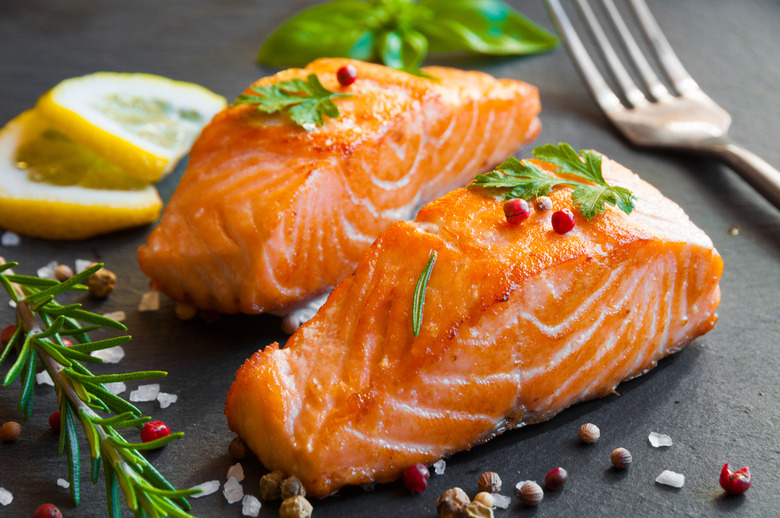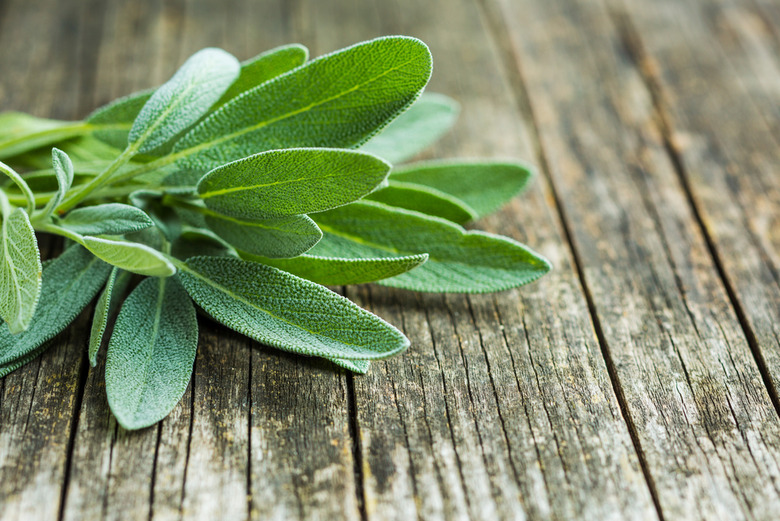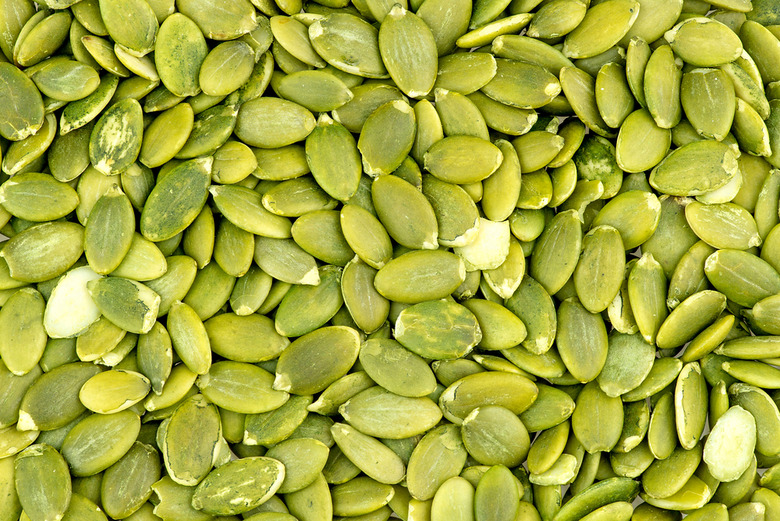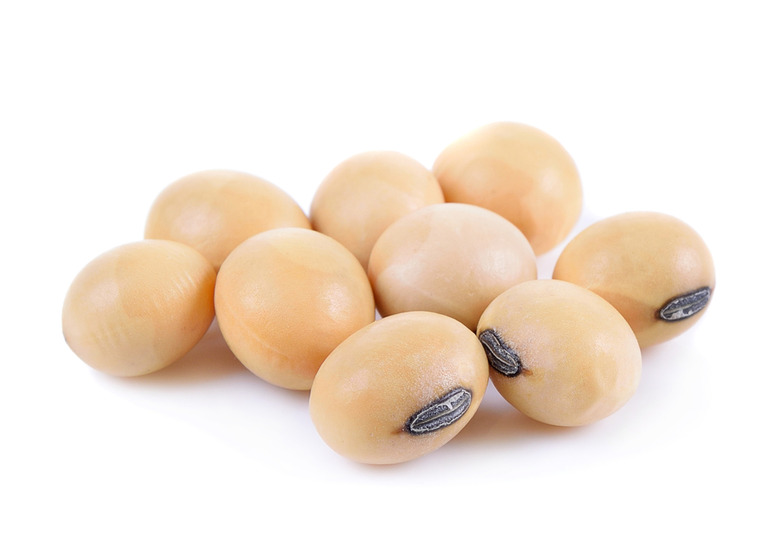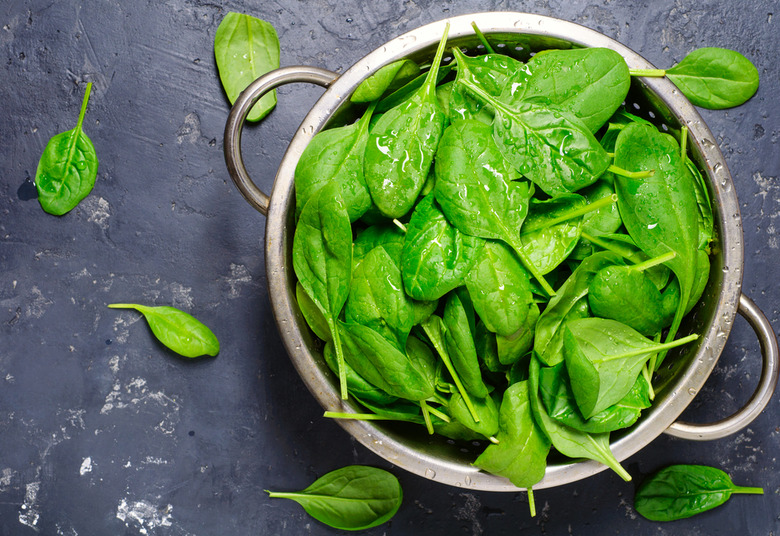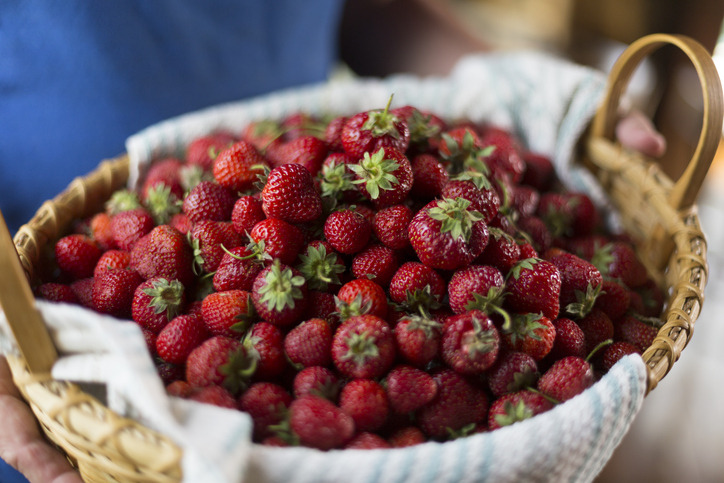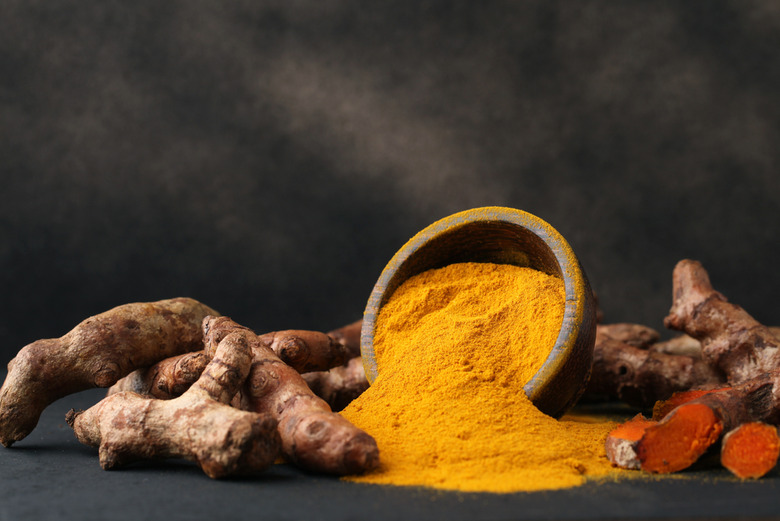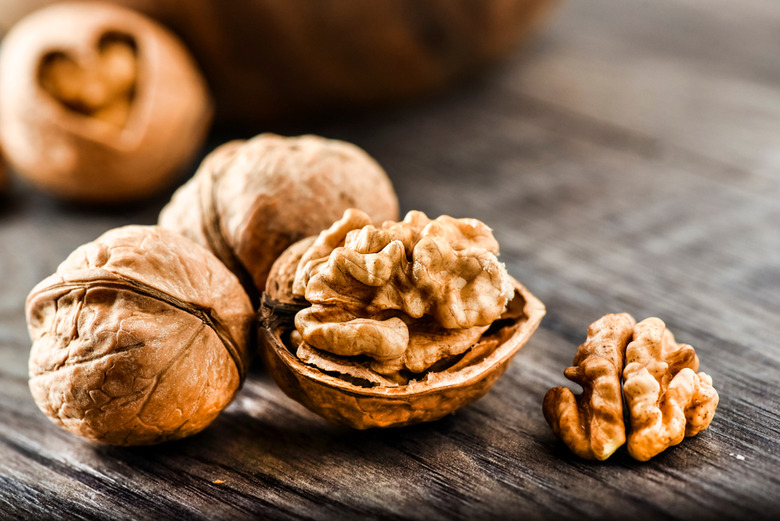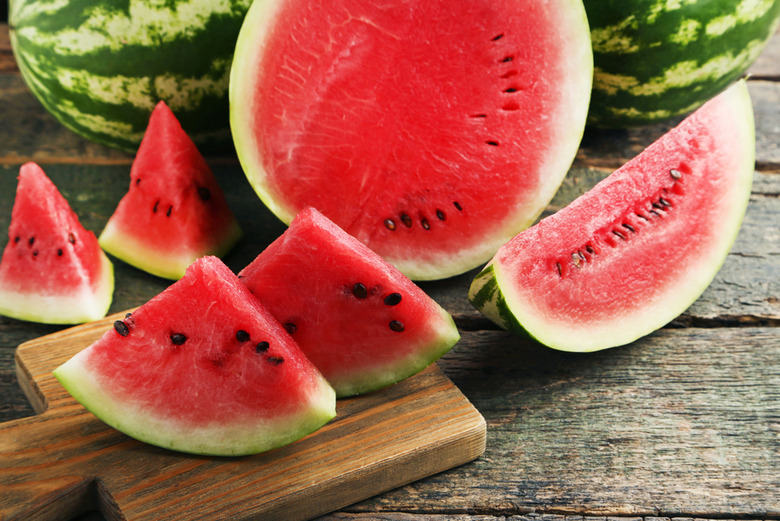Healthy Brain Foods You Should Be Eating
Maintaining healthy habits —like drinking enough water, getting enough rest and engaging in fun, new hobbies — can keep you young, and exercising can keep you fit, but if you want to protect your insides along with your outsides, it's important to maintain a healthy, balanced diet.
According to the Centers for Disease Control and Prevention (CDC), more than 16 million Americans are living with cognitive impairment. Cognitive impairment is when a person has trouble remembering, learning new things, concentrating or making decisions that affect their everyday life. These impairments can range from mild to severe. If you are looking to improve your brain health, incorporating certain foods into your diet can help enhance memory, improve learning abilities and increase problem-solving skills. Here are healthy brain-boosting foods you should be eating.
Avocado
Surprise: Avocados are actually a fruit. Avocados are also wonderful for your brain. According to the United Brain Association, avocados are packed with healthy monounsaturated fats that support healthy blood flow and information-carrying nerves in the brain. Avocados also have folate, vitamin C, vitamin E and copper. Research has also shown that older adults who eat one avocado a day have enhancement in problem-solving skills and memory.
Beans
Beans are a quick dinner dish you can make out of a can and a brain-friendly food. According to the United Brain Association, beans contain magnesium, zinc, fiber, antioxidants and folate, all brain-fueling nutrients. A folate deficiency can lead to neurological disorders like depression and cognitive impairment, so folate, in particular, is essential for brain function.
Blueberries
According to the United Brain Association, blueberries help fight memory loss by improving or delaying short-term memory loss. Research has also shown that blueberries may reduce the effects of Alzheimer's disease or dementia by protecting the brain from damage caused by free radicals. Blueberries have been linked to reducing inflammation in the brain, improving communication between brain cells and increasing plasticity, which helps cells form new connections, in turn supporting learning and memory.
Bone broth
Drinking a bowl of broth might be associated with flu season, but the savory soup might be worth adding to your regular diet. According to North Central University, bone broth is a gut health food that can also help your brain. The collagen found in the bones used in the broth contains amino acids like glycine and proline that help improve memory.
Broccoli
Broccoli — America's favorite vegetable — is also a brain-boosting food. According to Harvard Health, broccoli is rich in brain-healthy nutrients that have been proven to slow cognitive decline. Broccoli has also been linked to cancer prevention.
Canned tuna
Canned tuna, a food loaded with vitamin D, is also a great brain-boosting food. Canned tuna is low in mercury and packed with omega-3 fatty acids, which are healthy unsaturated fats. Omega-3s have been linked to lower levels of a protein in the blood that can form damaging clumps in the brain that lead to Alzheimer's disease.
Collards
If you've ever eaten at one of America's best soul food restaurants, chances are you've had a side of delicious collards. The popular Southern side dish is also loaded in nutrients. Much like broccoli, collards contain vitamin K, a nutrient that has been shown to help slow cognitive deterioration, according to Harvard Health.
Cod
Harvard Health recommends incorporating fatty fish with low mercury levels — like cod — into a healthy diet for improved brain health. Much like canned tuna, cod is a fatty fish that contains omega-3 fatty acids. A balanced diet with high levels of this fat can enhance memory and even help manage stress, according to the United Brain Association.
Coffee
Whether you prefer a latte, cappuccino, or one of the many other different coffee drinks, starting your day with a cup of joe can help your brain. According to Harvard Health, recent studies have shown that individuals who consume more caffeine perform better on memory tests and score higher on tests of mental function. Now you have an excuse to brew some delicious coffee at home.
Dark chocolate
There are plenty of reasons why you should eat dark chocolate every day — it's a mood booster, can help your thyroid health and it's delicious — but the sweet treat is also a brain-boosting food. According to the United Brain Association, dark chocolate contains flavonoids, a strong antioxidant that improves blood flow to the brain and reduces inflammation. Antioxidants are critical for brain health because the brain is susceptible to oxidative stress — a contributor to age-related cognitive deterioration and brain diseases. Dark chocolate can also improve brain plasticity, which is crucial for learning.
Eggs
According to the Egg Nutrition Center, eggs are a nutrient-rich food that fuels the brain. Eggs contain choline and lutein, important nutrients that assist in brain development, memory and learning. During fetal development, choline plays a critical role in brain development — meaning eggs are essential for pregnant women — and continues to benefit the brain throughout a person's life. Lutein — known as the "eye vitamin" because of its importance to eye health — has been linked to better cognitive function in older adults. Regularly eating eggs can potentially improve cognitive performance in adults. If you're not a fan of eggs, try pairing them with these unexpected ingredients.
Extra-virgin olive oil
Extra virgin olive oil has many health benefits, and the Global Council on Brain Health encourages adding healthy fats like extra virgin olive oil to your daily diet for brain health. A study published by the Annals of Clinical and Translational Neurology revealed that olive oil may prevent Alzheimer's disease.
Garlic
According to a study presented at the 2019 Experiment Biology conference, consuming garlic could help prevent Alzheimer's and dementia by counteracting age-related problems with memory.
Grapes
You never need an excuse to eat grapes, but now you have one: They're wonderful for brain health. According to Mayo Clinic, grapes are full of resveratrol, a memory-boosting compound. Concord grapes in particular are loaded in polyphenols, a brain-accessing antioxidant. The best time to buy grapes is when the seasons begin to change in September and October.
Kale
According to Harvard Health, kale is loaded with brain-healthy nutrients like vitamin K, lutein, folate and beta carotene. Nutrients in plant-based foods like kale have been shown to help slow cognitive decline. If making a kale salad sounds unappetizing, try incorporating it into a casserole for breakfast, lunch or dinner.
Almonds
According to Mayo Clinic, snacking on nuts like almonds when you're in need of a crunchy snack can benefit your brain health. Although they may be high in calories and fat, almonds are packed with fat-soluble vitamin E — one ounce of almonds contains 50% of the recommended daily value. Vitamin E is known for its brain-protective qualities.
Oatmeal
When life gets demanding and you want to squeeze in a quick meal with a wholesome punch, a bowl of oatmeal is an easy Instant Pot breakfast recipe that is healthy for your heart and great for your brain. Oatmeal is a whole-grain rich food. According to the United Brain Association, whole-grain foods support cardiovascular health, which helps blood flow more easily to the brain. Whole-grain foods also keep our brains alert by contributing to a steady flow of glucose in our blood that then flows to the brain.
Pollack
Pollack is another fish packed with omega-3 fatty acids. According to the United Brain Association, a diet that includes pollack or other fatty fish two times a week can protect your brain by lowering the risks of dementia and Alzheimer's disease.
Raspberries
According to Harvard Health, flavonoid — the natural plant pigment that gives raspberries their bright color — has been linked to boosting brain health by improving memory. Raspberries are also one of the best foods for healthy, glowing skin, so you'll look good while you're eating them too.
Rosemary
According to North Central University, rosemary contains carnosic acid. Carnosic acid helps protect the brain. Rosemary has also been shown to increase mental activity. Rosemary can be purchased from a local grocer or, if you have a green thumb, it is one of the best plants for rookie gardeners.
Salmon
Fatty fish like salmon can help lower your blood pressure and enhance your brain health. According to Harvard Health, salmon is a plentiful source of omega-3 fatty acids. Harvard Health recommends eating fatty fish like salmon twice a week. Try grilling salmon for a healthy, quick meal.
Sage
You might associate sage with delicious Thanksgiving dinner recipes and cooking savory meats, but the seasoning can also boost brainpower. According to the United Brain Association, sage may have memory-enhancing properties.
Seeds
Seeds are great for brain health and a heart-healthy food that should be added to your diet. Seeds contain omega-3 fatty acids and vitamin E, an antioxidant that protects cells from oxidative stress. According to the United Brain Association, vitamin E has also been linked to improved cognition and a reduced risk of Alzheimer's disease. Pumpkin seeds, chia seeds and pomegranate seeds are snack foods with a healthy punch.
Soybeans
Grilled steaks and juicy burgers might sound delicious, but too much meat is not good for your health. According to Mayo Clinic, a brain-healthy diet means consuming less meat — preferably fewer than four times a week — and substituting other foods packed with protein and fiber. Soybeans are a great alternative because they contain protein, fiber and B vitamins, which are essential for brain health.
Spinach
Because spinach is loaded with healthy vitamins, minerals, antioxidants and fiber, it's one of the foods you should eat every day. Spinach is also beneficial to brain health. According to Harvard Health, the tons of brain-healthy nutrients in spinach — like vitamin K, lutein and folate — may help slow cognitive decline.
Strawberries
Whether you prefer your strawberries as a quick snack or loaded on top of an iconic breakfast dish, strawberries are delicious. The sweet fruit has been linked to lowering the risk of cancer and improving brain health. According to Harvard Health, flavonoids in strawberries have been proven to help improve memory. One study showed that women who consumed two or more servings of strawberries and blueberries each week prolonged memory decline by more than two years.
Tea
Drinking a cup of tea is more than a relaxation technique that actually works — adding one cup of the drink to your daily diet can benefit your mind and body by improving your mood, boosting your immune system and increasing your brainpower. According to Harvard Health Publishing, the caffeine in a cup of tea can enhance mental function and lead to better memory retention. And if you're on a weight loss journey, tea is also one of the best foods for weight loss.
Turmeric
According to the United Brain Association, inflammation is a "universal brain destructor." Avoiding inflammatory foods is one of the best ways to go, but consuming anti-inflammation foods — like turmeric — is also beneficial. Turmeric is a bright orange powder that works wonders on your body. This spice contains antioxidants like curcumin, a potent and naturally occurring anti-inflammatory agent. Turmeric has been shown to improve the brain's oxygen intake, increase cognitive function and strengthen memory.
Walnuts
According to Harvard Health, walnuts contain a high amount of an omega-3 fatty acid called alpha-linolenic acid (ALA). ALA helps lower blood pressure and protects arteries, benefiting both the heart and the brain. Walnuts are also loaded with protein. Incorporating walnuts into your diet is a great step to take if you noticed subtle signs you need to eat more protein.
Watermelon
Picking the perfect watermelon is a summertime ritual many people enjoy, but making the juicy fruit part of your regular diet can also improve your brain health. According to Mayo Clinic, watermelon is a brain-boosting food that can maximize memory function. Watermelon has a high concentration of lycopene, a powerful antioxidant essential to the brain. Staying hydrated is also crucial to our health. According to Mayo Clinic, a mild case of dehydration can reduce mental energy and impair memory. Watermelon is a good source of pure water. If you're concerned about dehydration, here are the signs that you don't drink enough water.
More from The Daily Meal:
Grocery Shopping: How It's Different During Coronavirus
The Healthiest and Unhealthiest Frozen Dinners
Junk Food Trivia and Fun Facts
Expiration Dates: How to Know If Milk, Eggs and More Have Gone Bad
